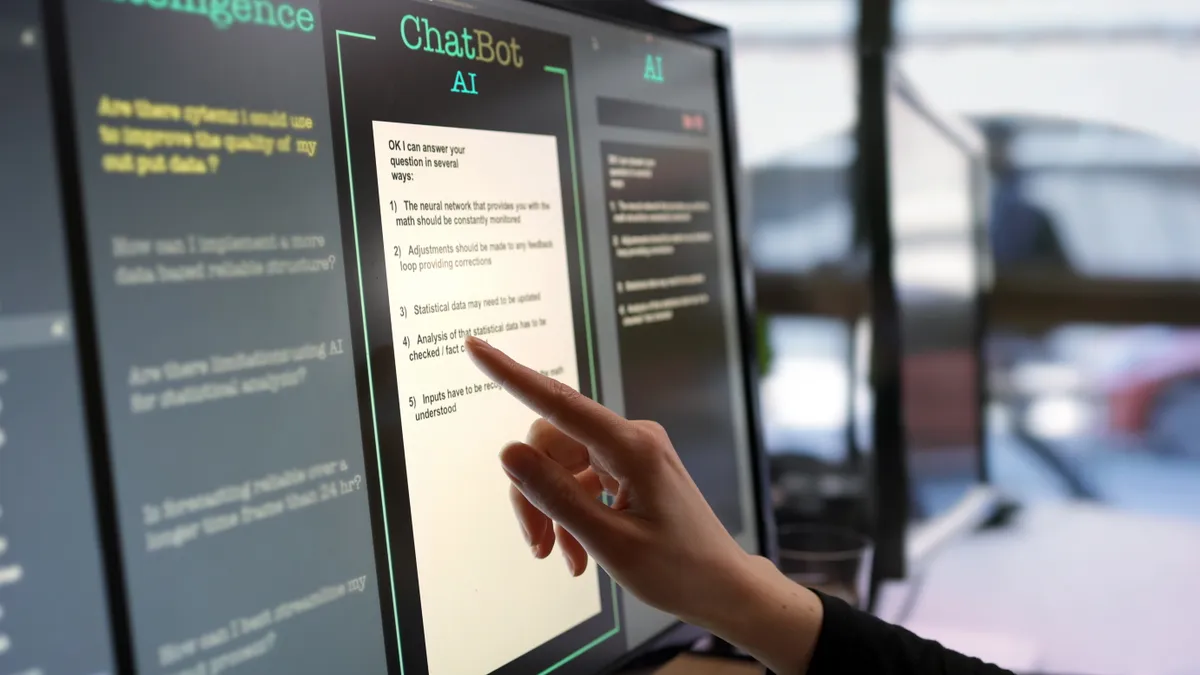After a majority of the nation's students went online during the COVID-19 pandemic, the Nation's Report Card plans to follow suit.
The U.S. Department of Education's National Center for Education Statistics will administer the National Assessment of Education Progress online beginning in 2024, after piloting the online exam in 25 volunteer schools with over 1,000 students this past April.
Prior to full implementation, NCES will test a random selection of almost 450 schools in spring 2023 using both online and offline administration, according to NCES commissioner Peggy Carr.
In 2026, the assessments will become "device agnostic," meaning students will eventually be able to test on any device. By that year, the Education Department also plans to pull out most of its field administration staff, instead relying on school staff to administer assessments where possible, said Carr.
By 2028, adaptive testing — where questions are tailored to student ability — will be in place. This could narrow inequities in the testing process with improved measurements for students with the lowest achievement levels, Carr said in an interview with K-12 Dive. Eventually, these innovations will lead to remote proctoring and assessment capabilities, which Carr estimated would be in reach after a few years.
This is the first time the Education Department has set a timeline for the eventual remote administration of the NAEP assessment, which was fast-tracked after school closures caused by the COVID-19 pandemic.
Planned NAEP Innovations
-
2022
Five states participate in a pilot, testing over 1,000 students in 25 volunteer schools for online administration.
-
2023
The department plans to field test almost 450 randomly selected schools with four variations of administration meant to account for schools with different testing capacities.
-
2024
NAEP will be ready for online administration.
-
2026
NAEP will be device agnostic, and the Education Department will pull out the majority of its field staff, transferring testing responsibilities to school staff that have the bandwidth.
-
2028
Adaptive testing will begin.
-
TBD
Remote proctoring and administration of NAEP will be possible sometime after 2026.
In March, Carr and other assessment leaders cited the pandemic's "sobering lessons" as cause for "serious internal examination" in how the nation's students are tested.
Now, however, the Education Department is preparing to field test four administration modes in spring 2023:
Mode 1: All tablets (student and administrator) connected to the school Wi-Fi (no classroom server or NAEP router in use).
Mode 2: Just one tablet (the classroom server) connected to the school Wi-Fi. Students will be connected via the NAEP router to the classroom server. The classroom server will be connected to the school’s network to upload student responses in real time.
Mode 3: Just one tablet (the classroom server) connected with NAEP-provided cellular Wi-Fi. Students will be connected via the NAEP router to the classroom server. The classroom server tablet will be connected via an iPhone hotspot to NAEP Wi-Fi to upload student responses in real time.
Mode 4: No tablets will be online. Students will be connected via the NAEP router to the classroom server, which will not be connected to the internet during the assessment. Student responses will be uploaded when a connection is available.
"So we are prepared to have different approaches and be flexible and nimble and considerate of where the school or the school district is," Carr said.
The various approaches will address logistical and procedural challenges highlighted in the five-state April 2022 pilot, as NAEP eventually goes online, with remote capabilities as well.
In Arkansas, one of the pilot states, students and districts were overall supportive and embraced the changes, said Kimberly Mundell, spokesperson for the Arkansas Department of Education. Their feedback, Mundell said in an email, provided "important insights into the advantages and limitations of transitioning from the current NAEP assessment system that did not need access to the school internet."
Some challenges highlighted in the pilot were internet bandwidth limitations and weather — a storm led to an unstable connection. "Things were slower than we would have liked," Carr said.
Another concern Carr said she gathered from districts and state representatives is the burden of test administration falling on schools, adding that schools are "already very taxed" with staffing and mental health concerns. This challenge could be particularly pronounced after the majority of NAEP field teams pull out from schools in 2026 and transfer testing responsibilities to school staff.
The four methods being piloted will offer options for schools that cannot provide their own staff or devices for testing. "So we will meet the schools where they are. We anticipate there will be variations," Carr said.
Eventually, this will lead to remote proctoring and administration capabilities, which Carr said would be conceivable in the next few years but not prior to 2026. "We don't want to put a time to that yet, because we've got to do it meticulously," Carr said. "So that will take a few years to achieve."





















